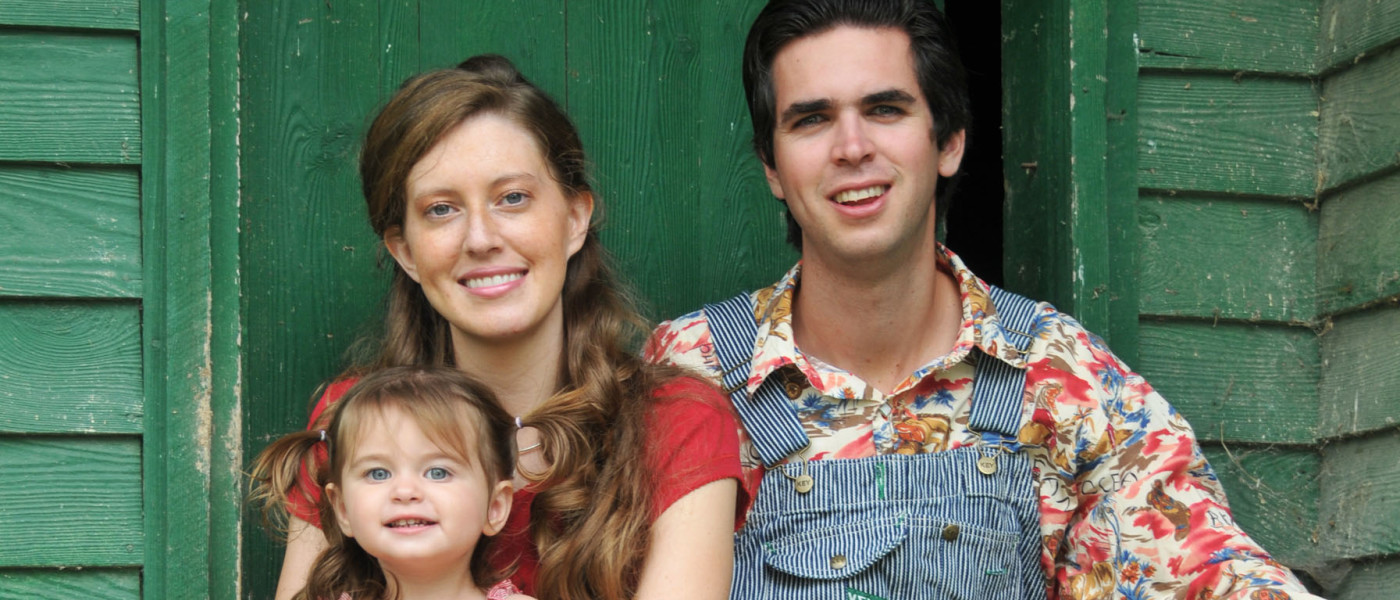Mansfield, MO
In 1997, at the age of 17, Jere started Baker Creek Heirloom Seeds in Mansfield, Missouri. By the following year, the company had printed 550 twelve-page catalogs, containing 70 heirloom varieties. Heirlooms are local or regional varieties that are passed down from generation to generation and have not been mass cultivated in at least 50 years. Jere’s commitment to heirlooms has sent him, his wife Emilee and their daughter Sasha to remote places across the globe to track down varieties that have been cultivated for hundreds of years. All of this travel has paid off, with this year’s 124-page catalog boasting roughly 1,300 varieties of heirloom seed from over 70 different countries. And the printer certainly has a tall order, as Jere plans to print a quarter of a million copies!
Jere’s operation sits on 176 acres, most of which is land for his father’s Angus cattle operation. The farm is made up of three different homesteads dating back to the 1850s, 1860s and 1870s for which the Gettles hold the original papers signed by the presidents in office at the time. Also on the land is a replica pioneer village, complete with a mercantile, bakery, gristmill and a large barn for meetings and speeches. Baker Creek hosts a monthly gathering to promote awareness and teach about everything from genetically modified crops to how to properly save seeds. Their smallest gatherings include about 800 people, while their huge 2-day spring event can bring in more than 6,000 people who come to listen to national garden speakers, seed industry greats, as well as learn about and meet historic breeds of chickens and ducks.
Jere’s favorite heirloom is the Cherokee purple tomato, an old Native American variety, though all types of fruits and vegetables fascinate him. “I am interested in all the colors, shapes and sizes,” said Jere, “Red, green, purple, white tomatoes — you get hooked.”
Having different varieties is about more than just enjoying the colors and shapes. “There are hundreds of reasons why [biodiversity] is important,” said Jere, including protecting our farms against blight and other diseases that can have significant economic implications and ultimately lead to famines. In addition to supporting biodiversity, Jere’s customers cite fear of genetically altered produce and the history that each plant holds as their top reasons for investing in heirloom seeds. In fact, Jere sells seeds that can be traced back to Thomas Jefferson and others grown by the native people of many South American and Southeast Asian countries where seed origins can be traced back over a thousand years.
However, according to Jere, “The thing that gets people believing in the old varieties is the taste.” Not only are heirlooms packed with up to 50% more vitamins and minerals than most of today’s modern varieties, they have richer and deeper flavors.
Like all facets of agriculture, the industry has become increasingly consolidated in recent history. “Most seeds are controlled by a few companies,” said Jere, “So one day will 99% [of the produce] come from one company?” There is a lot of risk in that. If the company has a bad crop or goes under, how will farmers grow our food? That’s why keeping heirloom varieties thriving is so important.
In any given year Jere grows 70 heirloom varieties for seed on his own land and has over 50 farmers growing for him. The hardest part for Jere now is to keep the seeds he sells through Baker Creek free of contamination by the pollen of genetically engineered (GE) seeds. “We have probably lost half of our varieties to contamination,” said Jere. And that number is likely to increase. “We test all of our corn because corn is wind pollinated and pollen is so light it travels miles during a storm.” Summer squash, beets and melons are what Jere thinks he will have to worry about next. Crops like eggplant and tomatoes self-pollinate before their flowers bloom so they will stay safe the longest.
Farmers who buy patented seeds often enter into a contract that forbids them from saving seeds. Many farmers have been sued by GE seed companies for allegedly saving seeds, while neighboring farmers whose crops have been contaminated by GE pollen drift have been sued for unknowingly possessing GE seeds.
Jere, on the other hand, does his best to insure quality for his customers and a guarantee that the seeds they buy are theirs for as long as they keep growing with them. “We do not want the farmers who buy from us to worry about signing a contract, ” said Jere. “We want them to save their seeds for next season,” the way it’s been done for thousands of years.
Date: 9/24/2009



